
Coming....
- Subject:
- Applied Science
- Health, Medicine and Nursing
- Material Type:
- Lecture
- Provider:
- University of Copenhagen
- Provider Set:
- NCDs in Humanitarian Settings
- Author:
- ICRC Doctor Sigiriya Aebischer Perone
- Date Added:
- 01/07/2018
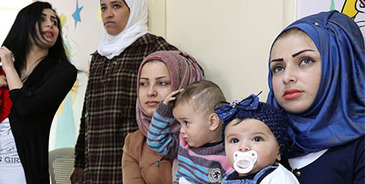

Coming....
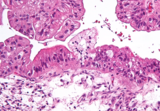
Coming....

Coming....
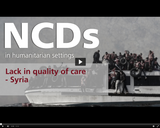
Coming....
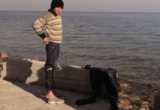
Coming....

Coming....
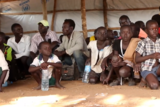
Coming....
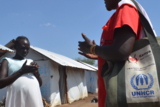
Coming....

Coming....
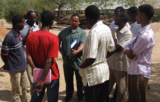
Coming....

With the toll of the global COVID-19 pandemic approaching 3 million deaths in 192 countries and new and dangerous variants emerging constantly, the need for concerted global action has never been greater. This calls for not only a thoughtful public health approach but also diplomacy to bring coherence from the range of disparate and self-interested national responses. This is not the first time global health diplomacy has been called for: from the smallpox eradication program to Millennium Development Goals and more recently efforts to unify global health security, understanding and agreement between nations requires an appreciation for the political as well as the epidemiological aspects of response to these societal challenges. This talk will provide a brief history of global health diplomacy in the era of globalisation and discuss the challenges and opportunities posed by 21st century pandemics.
As the former US representative on the Executive Board of the World Health Organization and assistant secretary of health for global affairs during the Obama administration, Dr Nils Daulaire has practiced global health diplomacy at the highest levels. At present, Dr Daulaire is a Senior Visiting Scholar at the Arctic University of Norway/UiT and at the Harvard School of Public Health.

Building capacity to address issues of Sexual and Reproductive Health and Rights is considered by many development actors as a cornerstone in promoting sustainable and equitable development. Lund University, through the Division for Social Medicine and Global Health (SMGH), has been engaged with this work for the past decade. This session will provide an introduction to the methods used, and some highlights from the ongoing programmes.
Presentation is by Jack Palmieri, Social Medicine and Global Health, Lund University.

Presentation by Stefan Swartling Peterson, Karolinska Institute, Sweden.
Tropical Medicine was the origin of today’s Global Health, which is now increasingly under debate. There is the “decolonize” debate, but also the failure to overcome the “implementation gap” - whereby a majority of maternal child deaths today could be prevented with existing knowledge. In this talk, Stefan Swartling Peterson will sketch the evolution of Global Health as a discipline, and share thoughts on what a transformation to “Glocal, Sustainable Health” could look like.

Introductory lecture to 11th semester (international semester) in Medicine. General introduction to the concept of global health, and the importance of culture. Global health = local health, migrants health as an example
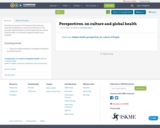
Introductory lecture to 11.semester (international semester) in Medicine. General introduction to the concept of global health, and the importance of culture. Global health = local health, migrants health as an example
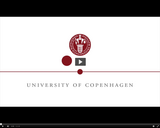
In this presentation, we discuss how tourism in Zanzibar may add to the number of mosquito breeding places and thus increase the use of chemical insecticides, which is a major environmental strain to Zanzibar. Furthermore, we will discuss how mosquitoes become resistance to the insecticides and how tourism affect this resistance development.
You might also listen to this related podcast-series about Zanzibar- Paradise under Pressure, about sustainable tourism: https://paradis-under-pres.simplecast.com/
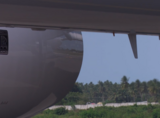
This presentation introduces the Sustainable Development Goals (SDG), and discuss why development of sustainable tourism has become part of the global agenda. In continuation of this, we will discuss the global trends in tourism.
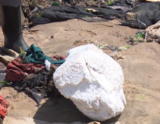
In this presentation, we will discuss the impacts of tourism on marine environment in Zanzibar. In continuation of this, we will discuss sustainable development challenges regarding small island environments. Among challenges are rapid growing populations, a constantly rising number of tourists, limited freshwater resources, and fragile marine ecosystem.
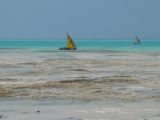
This presentation introduces the term “death by tourism” and discuss’ the impact of uncontrolled tourism on local communities. In continuation of this, we will discuss the importance of Certification of Sustainable Tourism and introduce the three types of Sustainability Certification schemes.
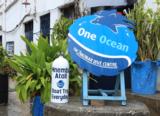
In this presentation, we will discuss how saltwater intrusion affects small islands freshwater supplies, and how tourism is a significant part of this. In Zanzibar fresh water for drinking and other purposes come from rain that replenishes the island’s groundwater reservoir and in many cases freshwater is a scarce resource. On top of this, the excessive pumping in groundwater for the tourist industry increases the risk of salt water seeping into the freshwater magazine from the sea, thereby destroying the freshwater resource.